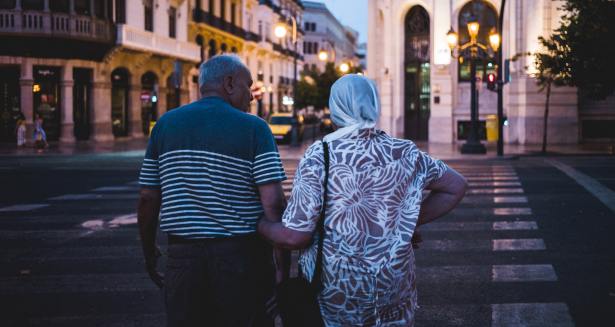
Photo: Sue Vincent
“Why is it this way, Mama?”
The woman let the small hoe drop from her hand. She straightened, hands over the small of her back, achy from the bending. The plot was spare, and the harshness of many a hard winter had stripped most of the topsoil off, leaving more pebbles than dirt. Still, it was better than nothing, and she was thankful.
The child had been sorting stones into piles. Larger ones. Medium ones. Smaller. There were repairs to make to walls and fences, and very little in the way of clay. Sizing stones helped make the puzzle of fitting the best bit in the best place, easier. It was a tedious chore that the girl somehow managed to make into a game. She had that magic in her, Margot did, the spark of joy that Annabelle spent every night praying would not ever have cause to slough off or be snuffed out.
“Mama?”
Annabelle nodded and turned her head toward the object of the child’s query. She’d had no option but to sit the child facing the chasm. One did not turn one’s back to the mist. Disrespectful. Ill fated. Even for children, who normally carried more protection by nature of their youth. Still, it was best to take precaution, and what the child learned early, she was less likely to forget later on and take a wrong step.
There was reason this plot was made available. Not many farmed so near the rift. Some claimed the uneasy air made foodstuffs grow small and weary.
Some did not have the luxury of growing theirs elsewhere.
“The light does not quite shine there the same way,” she said.
“What did they do?” the child’s voice was filled with pity, not fear, and Annabelle did not know whether in this particularity the compassion was something to celebrate or warn against.
“Some say they’d tied their soul to dark,” Annabelle sighed. The split and its reality was not something often spoken of. Yet unless some miracle happened and their circumstances changed, the child was destined to spend many days in close proximity to the Others’ side. It was better she heard truth from her mother, than distortions from those who felt more comfortable with lies.
She felt the child’s small hand slip into her calloused palm.
“They are not different than us, Margot. Not really. There was time before the split, before the earth heaved and the crack formed and separated this land into its pieces, where we all lived mixed together, if we even knew we were more than one kind. Now those who had happened to be on the parts that became the other side of this canyon, have the mountains dump the clouds onto them and the rapids raise a constant mist. It diminishes their sun.”
The child shuddered. Annabelle squeezed her hand to reassure her.
“There are those who chose to make their fear into a hatred, Margot. And that led to needing to make those one hated, be worthy of such ill-regard.”
“So they are good?”
“Most are. And some very likely aren’t.”
“And the big rocks?” Margot turned her head to inspect the piles she had just made. The stones balanced atop each other in formations mirroring the massive ones on the misty horizon.
“Put there, no doubt. No one quite knows why or how. Some say the ghosts of evil did it. The goblins that spit poison from the earth and crack the ground. I? I think it was people who’d arranged them. As you had the smaller ones.”
Annabelle had never shared with anyone the image that she’d seen nine months before the child was born. The figures scurrying on the impossible embankment, tucking what appeared to be smaller stones in the places where rocks nestled atop one another. The reverent silence of the people had her wonder whether they perhaps saw the rocks as headstones, memorials to those who had been lost to the maw that had swallowed so many when it had first sliced open the ground. A maw many did not believe anyone crossed.
She used her free hand to lift the girl’s chin so their eyes met. “Why did you put them this way, child?”
The gray eyes widened for a moment. In thought, not worry. “I wanted to respect the other stones, Mama. Their balance. How they don’t fall into the underside.”
Annabelle’s eyes filled. Her breath caught.
She smiled.
She never did find out who had forced her that night. She was blamed aplenty as it was, and so she never did tell anyone that she’d believed it had been someone who might’ve seen her watch them. Someone from the Others’ side.
For Sue Vincent’s WritePhoto












You must be logged in to post a comment.